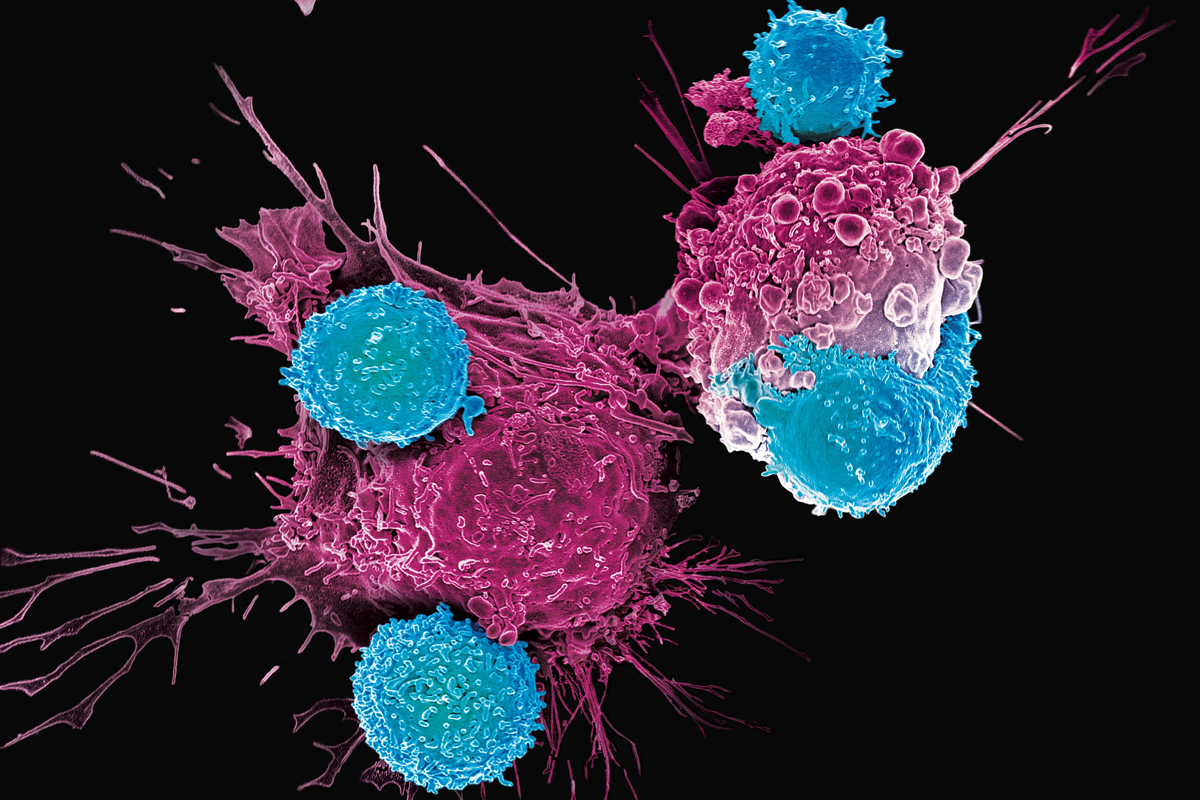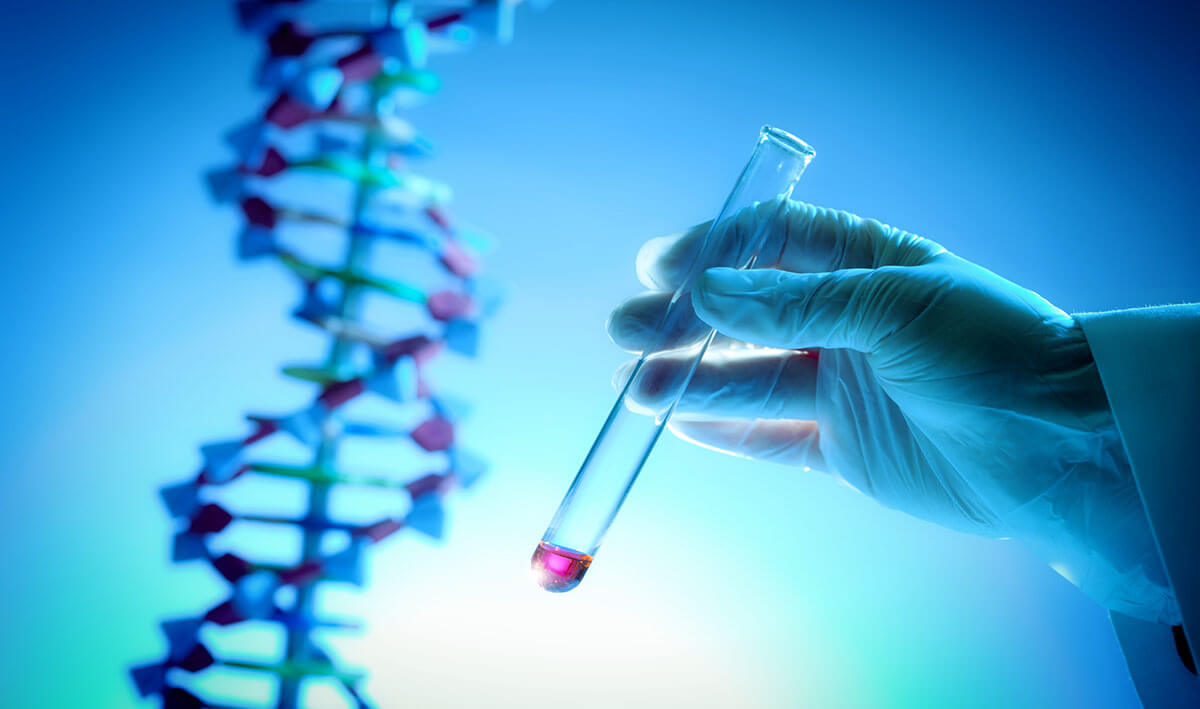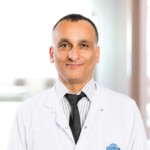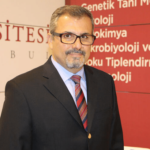-
 Medical articles
CAR T therapy: helps treat cancer when other methods fail
Medical articles
CAR T therapy: helps treat cancer when other methods fail
-
 Medical articles
Cancer incidence is steadily increasing: disappointing WHO forecast for 2050
Medical articles
Cancer incidence is steadily increasing: disappointing WHO forecast for 2050
-
 Medical articles
Stem cells bring hope to millions of people suffering from hearing loss
Medical articles
Stem cells bring hope to millions of people suffering from hearing loss
-
 Medical articles
TOP 10 clinics for oncology treatment 2023
Medical articles
TOP 10 clinics for oncology treatment 2023
-
 Medical articles
New methods for diagnosing cancer diseases
Medical articles
New methods for diagnosing cancer diseases
All news
Type 1 Diabetes treatment
In the first version of diabetes, the body does not produce the necessary amount of insulin. Insulin is a hormone that is necessary for the normal consumption of glucose by the cells of the human body.
Glucose is a simple form of sugar and acts as the “fuel” necessary for the normal functioning, growth and reproduction of cells in the living body. Insufficient insulin production leads to the accumulation of glucose in the blood and tissues.
Excessive glucose causes the typical symptoms and complications of diabetes mellitus.
The MedTour platform presents only certified medical centers that offer quick and efficient diagnosis of type 1 diabetes. Medical centers are accredited by JCI (Joint Commission International) and meet international quality standards ISO.
It takes about 3-5 days to diagnose type 1 diabetes.
MedTour patients recommend clinics for the treatment of type 1 diabetic:
Doctors for the treatment of type 1 diabetes
Frequently Asked Questions
People with type 1 diabetes may notice one or more of the following symptoms:
- Thirstiness (polydipsia),
- Elevated urination (polyuria),
- Pathological weakness and fatigue,
- Elevated feelings of hunger,
- A feeling of dry mouth,
- Unreasonable weight loss,
- Blurred eyes.
The development of type 1 diabetes is based on an absolute lack of insulin production by the cells of the pancreas.
Patients with 2 type diabetes have a normal amount of insulin. However, the body’s tissues do not respond to the action of insulin, i.e. have insulin resistance. This leads to inadequately low glucose intake and glucose accumulation in the blood.
Glycated Hemoglobin Determination
Hemoglobin is a protein found in red blood cells that is responsible for the reversible addition of oxygen. It is part of the process of respiration and gas exchange.
Glucose (sugar) can irreversibly attach to hemoglobin to form a new compound — glycated hemoglobin, or glycated hemoglobin. The life span of an erythrocyte is about 120 days. This makes it possible to measure the average blood sugar content over the past three months.
If the results of two independent tests show a glycohemoglobin content higher than 6.5%, it may indicate the presence of diabetes in the subject.
Measure fasting blood sugar
The patient is asked to have a last meal 12-15 hours before the study, after which time he/she should fast and avoid eating anything other than water. Blood sugar levels between 5.6 and 6.9 mmol/l are considered normal. Exceeding the figures from the results of two tests performed, indicates the presence of diabetes mellitus.
Random blood sugar determination
The blood sample is carried out at random times, regardless of meals and time of day. Diabetes mellitus can be diagnosed if two independent tests show blood sugar levels above 11.1 mmol/L.
A blood test for autoantibodies
To determine the type of diabetes, the doctor may prescribe a test to detect antibodies against a person’s own tissues. Normally, antibodies neutralize foreign, potentially dangerous cells such as viruses, fungi, bacteria, etc.
In some cases, the body starts producing antibodies against its own cells and tissues, including insulin-producing cells or insulin itself.
Diabetes mellitus is associated with a high risk of complications that affect the eyes, kidneys, nerves, blood vessels, and other organs. It is important for a medical center to be multidisciplinary and have a specialized endocrinology department.
The MedTour platform brings together advanced medical centers for the treatment of diabetes in Germany, Turkey, Israel, South Korea, and others. Leave an application on our website, and we will help with the selection of a medical center, taking into account your wishes.
Life expectancy is affected by a number of factors:
- Moderate physical activity,
- Blood sugar control,
- Meal regimen and diet,
- Concomitant diseases.
After diagnosis, the 10-year survival rate is 98%, after 20 years more than 92.1% of patients maintain their vitality, and the 30-year life span is reached by 79% of patients.
Statistics show that diabetes mellitus is a disease with a relatively favorable prognosis, provided all doctor’s prescriptions are followed.
Diabetes mellitus is not a direct cause of death. It is caused by complications that occur when blood sugar levels remain high for a long time.
Heart and Vascular Diseases
Diabetes mellitus complicates the course of diseases such as angina (chest pain), cardiosclerosis and cardiomyopathy, and may also be the cause of myocardial infarction or stroke.
Nerve damage (neuropathy)
Increased sugar in the blood affects the small vessels that feed the nerves. This causes atrophy of the nerve endings, which leads to decreased sensitivity in the extremities, up to complete anesthesia.
Kidney damage (nephropathy)
The kidneys have many small vessels that serve as a «filter» of the human body. During diabetes, these vessels can lose their original structure and be replaced by connective tissue.
Glucose Disease
High glucose levels in the bloodstream affect the blood vessels that feed the retina. Potentially, this can lead to partial or complete loss of vision. Type 1 diabetes also increases the chances of getting other eye diseases, such as glaucoma and cataracts.
Injury to the lower extremities
Patients with diabetes may have poorer blood flow to the lower extremities. This leads to prolonged healing of even minor wounds, abrasions, and blisters. Often, minor skin injuries are joined by a secondary infection.
Complications during pregnancy
The presence of diabetes negatively affects both the fetus and the expectant mother. Uncontrolled blood sugar levels increase the development of birth defects and anomalies, and also cause miscarriages.
Pregnant women are more likely to experience complications that affect the eyes and kidneys.
Skin and mucous membrane diseases
Elevated levels of glucose negatively affects the protective functions of the skin and mucous membranes. Sugar is a favorable environment for the growth and reproduction of bacteria and fungi. This leads to the development of infectious diseases on the skin and mucous membranes.
Currently, there is no consensus among specialists about the causes of type 1 diabetes. It is believed that heredity plays a major role in the possible development of the disease. If one parent has the disease, the chance of getting type 1 diabetes during life rises to 4-10%.
Autoimmune damage to the pancreas may be caused by Coxsackie or rubella viruses, but there is no conclusive evidence yet to support this theory.
Streptozocin, a chemo drug used to treat pancreatic cancer, exhibits selective toxicity to insulin-producing cells.
What are the benefits of diagnosing and treating type 1 diabetes abroad? (2021)
Experienced specialists
Doctors from advanced medical centers deal with the most severe cases of diabetes mellitus in patients from all over the world. Our specialists receive advanced training every year and participate in clinical studies for new treatments.
Before your visit to the clinic, you can read about the work experience and scientific achievements of any specialist. All information is publicly available.
Clinic Equipment
Large multidisciplinary medical center is equipped with its own laboratory, as well as all the necessary equipment for quality diagnosis and treatment of diabetes. You will undergo all examinations under one roof. The duration of diagnostics is just a few days from your arrival to the country.
High standards
Most medical centers on the platform meet international quality standards and are accredited by JCI (Joint Commission International, USA).
How is type 1 diabetes treated?
The main treatment for type 1 diabetes is insulin therapy. Over many years of studying diabetes, scientists have learned to create different forms of synthetic insulin analogs that do not differ from what is produced by the cells of the pancreas.
The doctor may prescribe one or more forms of insulin:
- Short-acting,
- Ultra-short-acting,
- Medium-acting,
- Sustained action.
The combination of different forms of insulin preparations makes it possible to plan treatment on the basis of the body’s individual needs.
Injections of insulin
Insulin cannot be taken in tablet form because it is quickly destroyed in the stomach by digestive enzymes. For this reason, insulin is given by injection. Modern insulin injection devices are considered quite convenient. Reusable syringe pens allow insulin to be injected for different durations.
Studies show that using several types of insulin throughout the day more mimics normal pancreatic function and promotes a more favorable course of diabetes.
Insulin pump
You may want to talk to your doctor about using an insulin pump. This is a small device that delivers insulin through a small tube attached to a catheter on a pre-programmed cycle.
Compared to conventional insulin injections, the pump is the preferred option because the program controls the insulin delivery itself, without the involvement of the patient.
Artificial pancreas
Science does not stand still. Every year, new treatments are discovered for hard-to-cure diseases, including diabetes mellitus.
The United States, Israel, and several other countries are participating in international clinical trials to introduce an artificial pancreas.
This surgery involves the introduction of an implant and a sensor that measures blood sugar levels every five minutes and gives a signal to release the necessary portion of insulin.
Published:
Updated:


Information on this webpage verified by the medical expert




